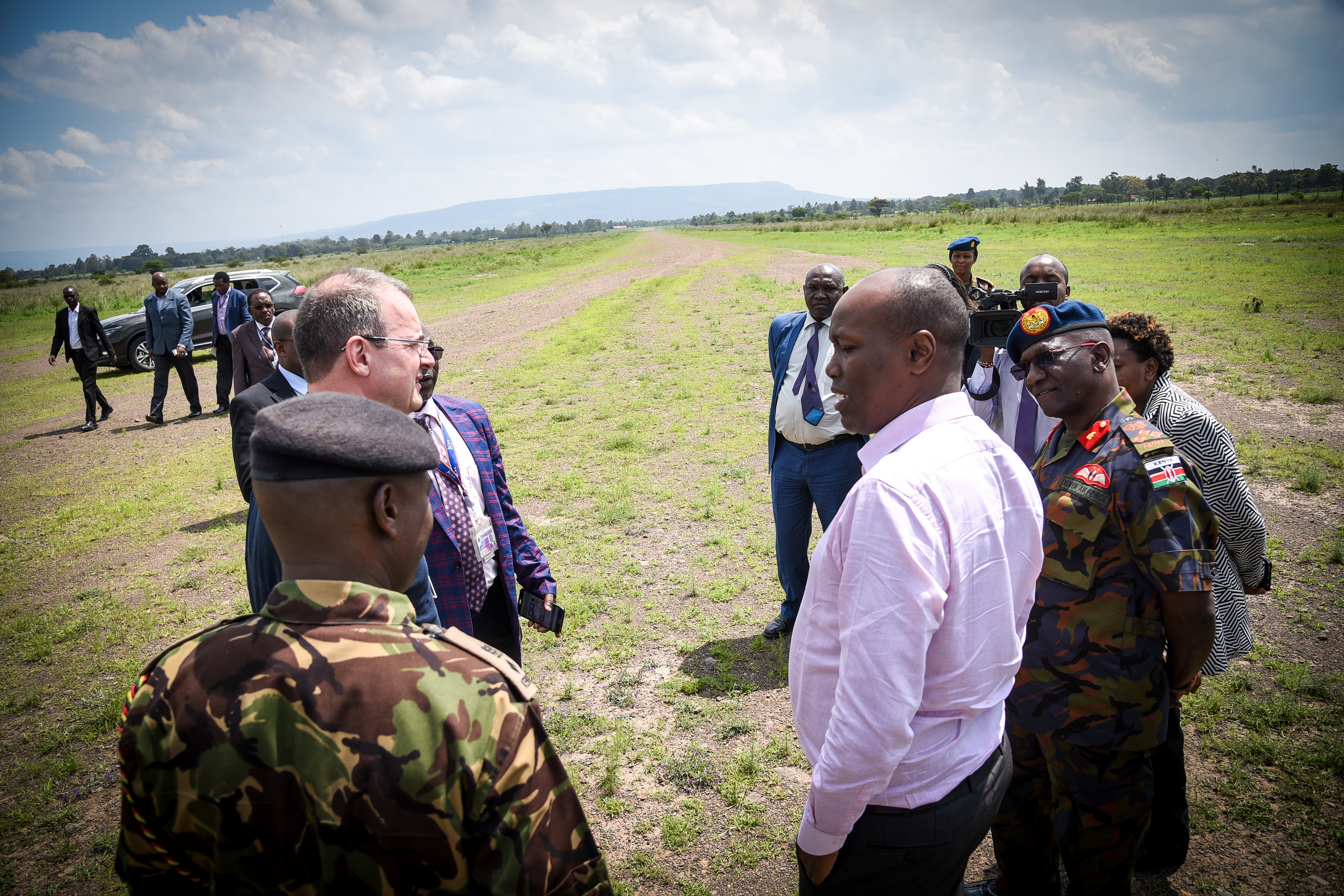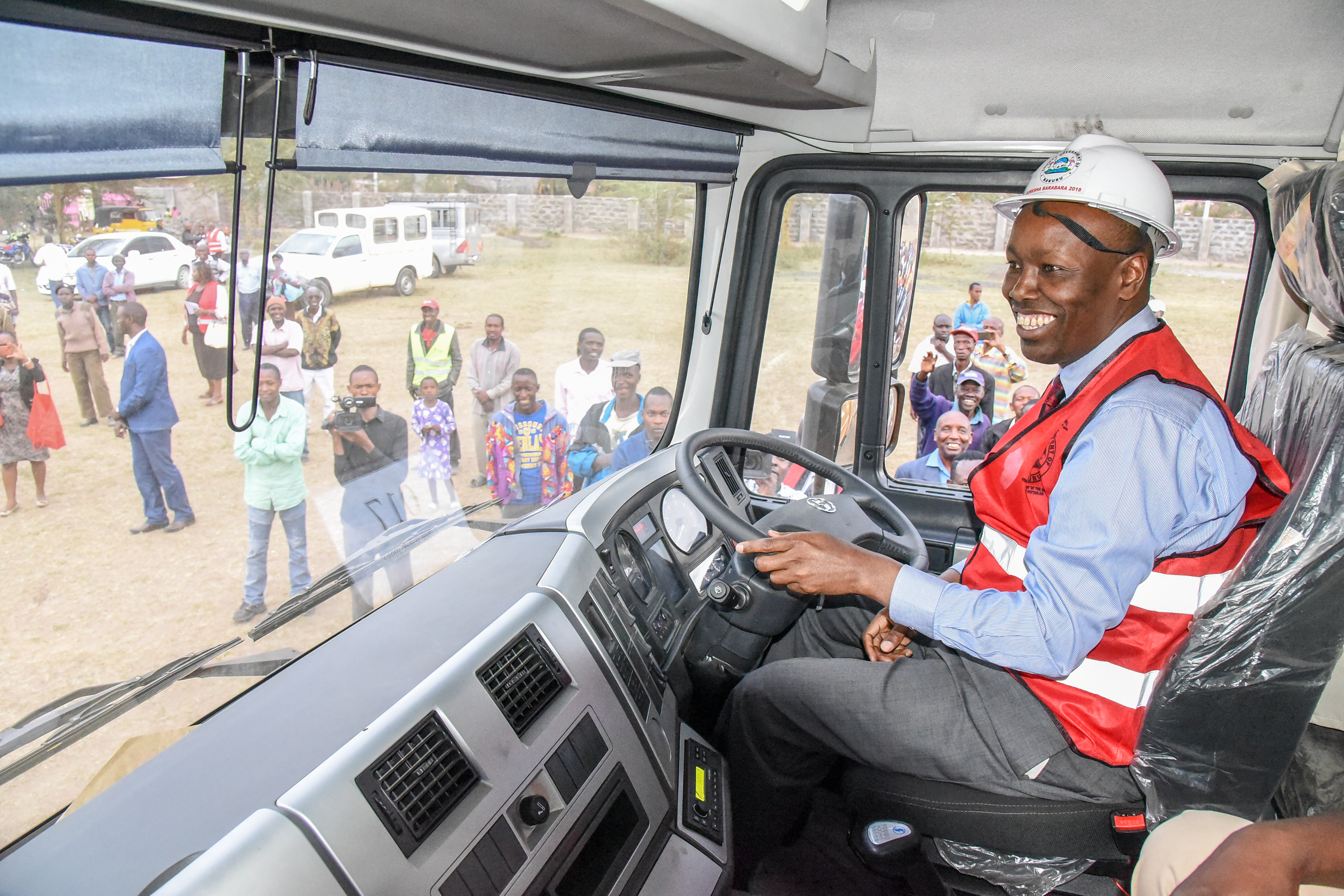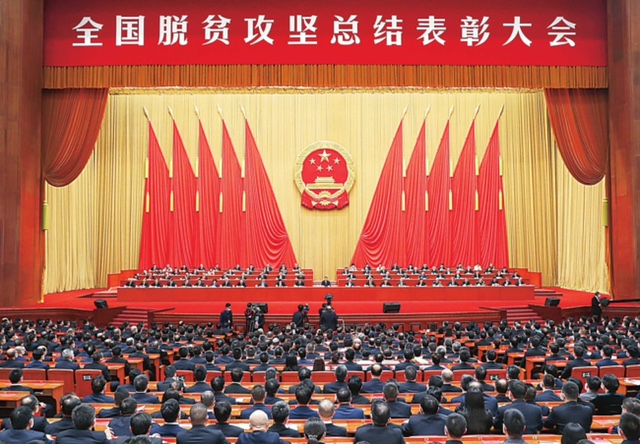Governance is serious business, but not very many politicians understand this maxim. His Excellency Lee Kinyanjui, the Governor of Nakuru County in Kenya, is, however, different. He has approached governance with the same gusto as business leaders. And the county has won admiration from people within and outside the continent. In this exclusive interview with African Leadership Magazine, Governor Kinyanjui talks about the business of governance, infrastructure development, job, and wealth creation, among other issues. Excerpts.
Since your inauguration on August 21, 2017, three years in office as Governor of Nakuru Country, your administration has won the admiration of many as a result of your developmental strides in the cosmopolitan county of Nakuru. How have you been able to achieve this feat that has earned you this admiration?
Thank you. I want to, first of all, give a background. Before the elections, I worked briefly as a Parliament member for one of the constituencies within my county. And after that, I also worked in the government as Deputy Minister for roads. And later on, I also worked in the National Transport and Safety Authority of Kenya. So I have a track record in public service, but more importantly, public service must also be defined with the same parameters that we define private life or business. And I think one of the things we tried to do since we got to the office is just to put business-like thinking in the running of public affairs. If I may just give a quick example, you will find that in our public hospitals, public schools, public markets, a lot of times, we give the excuse that it’s a public school, which often means that the standards accepted for a public school are somehow acceptable if they are less than what we accept for a private school. The same way for a hospital.
Consequently, as a result of that sort of thinking, we have gradually reduced our outlook. One of the things we have been trying to do, when I got to the office, is to revamp the public service because these are the people who do the work; and then one of the things we have done is to introduce contracts. The tradition in the past has been employed and pensionable people; whether you perform or do not perform, you will remain there till your retirement age. So we have introduced what you call contracts; so you are there for three years. You will be there for a three-year term, and you can come to defend your position, and if you performed, you could be given a renewal. And that has changed the public service outlook. And as a result of that, you know that you must deliver if you want to work for the next three years. We have also introduced targets. If you are heading a market, we want to see some kind of growth every year. So, we review your progress. We look at cleanliness. We look at how you relate with the public, and so on. So, in the general area, that may call revamping public servants to reorient their minds and look at service differently. This is the first thing.
The second thing is looking at the current legal framework and finding ways in which it can be realigned to help public service to interact or to work with its citizens. And then, as you can imagine when it comes to the provision of services in a place like a county, there are specific areas where the county is supposed to have its markets, roads, public health, all those areas, but the truth is that you would not be able to work alone, you need to create an environment where even the private stakeholders have an input and to also realize that if you are thinking of healthcare, there is no private or public patient. We need good healthcare across the board.
So, we have come up with legislation that seeks to harness and bring investors on board and come up with partnerships that will eventually help citizens and also make money as a business person. Creating that environment has been very critical. And in line with that, we have the tourism bill, for example, that seeks to create tourism opportunities for hotels and other tour operators. We also have the cooperative bill because, again, you know, rural people are largely poor. They are farmers, but they have no systems for collective marketing. So, they end up being exploited by middlemen and big companies. So, we are trying to put them into cooperatives where they can come together, they can learn together, they can access credit, and also market their produce at a platform that provides them with the opportunity to negotiate and get at their best price. And also, within the cooperative and the agricultural subsector, we have introduced even new crops because we are looking at the traditional maize beans that are grown here and realizing that what we are can get out of it is limited. So, we are asking, for the same land, what more can you grow that makes you a better person and more. We have introduced avocado, cash crops that can change the well-being of the people. So, in short, working with the cooperative to bring economic empowerment to the people, especially at the grassroots.
You said you were the Deputy Minister for Road and Transport. Could that be the reason why the major focus of your administration has been in the area of infrastructural development, which includes the ‘Boresha Barabara’ program, which you initiated to rehabilitate and construct rural access roads in Nakuru County?
I must say that when I worked for the state, one of the key areas that we found that had a serious economic multiplier effect was the issue of roads because, with good roads, the farmers can sell that produce at reasonable prices. When the roads are very bad, we find that half of the value of the crops goes towards transport. So, it encourages poverty and all those other issues.
We are also largely a tourism county, and as you can imagine, the tourists want to access every part of your county so that they can experience the good things that are happening there. So, I think roads have a major impact on the economy. My background certainly has helped me.

There is a concept we use, called value-capture, which simply means if you go to an area with low infrastructure, when you build infrastructure, you raise the value of that area, and because we also collect what we call land rate, the value also goes up. So, it is a win-win for the government, especially the local governments and sub-national governments, that we develop infrastructure so also that we can raise our income. More importantly, because of planning lag, especially in our third-world countries, you find out a lot of times, it is the private sector that proceeds to develop an area, and the government follows up late. And that has been a major problem even in our country, where we have to tell people to demolish, and you are now building a road because it was not initially planned. So, the process of planning and infrastructure becomes inseparable, and those are the things we are trying to bring because we believe that good infrastructure is not accidental. It is deliberate, and it must be planned for.
You did not just focus on road construction. Residents of your county also tell us of your strides in the area of healthcare infrastructure. The development of rural healthcare facilities has also been a major priority for your administration. Why is this a priority for you?
When we got elected in 2017, we commissioned a team led by one of the reputable professors from our university here. The terms of reference for that team were to look at our healthcare status, look at the challenges we are having, and make recommendations. I want to say that was probably the most important report because the team came up with a roadmap to the healthcare recovery program. We are simply trying to look at key areas: Firstly, reducing your downtime; when a person is sick and is supposed to go to work or the farm, and they cannot get quick medication or support, then it means that we have a labour force that is no longer working. So we want to reduce that downtime. Secondly, we were also looking at enhancing primary healthcare, meaning that we do not want to wait for people to get very sick before they can get help. So, we are also working with community health volunteers who are grassroots sort of doctors. We are very proud of this program because it has brought amazing results. And as at the time we initiated it, we did not have this corona problem.
So, the outbreak of coronavirus has probably just made it even more necessary, but it was a program that started much earlier to increase infrastructure, to increase healthcare workers, and also to make sure that they are motivated; and I am also happy to note that they are on contracts. This means that their performance, their delivery, and you know we found quite interesting that some of our surgeons before we asked them to come to do one or two surgeries a week, and what happened are that sometimes when patients will come, they are told if you come to the government hospital, the earliest you can have your stomach or whatever operated is two weeks. However, if you have resources, I can refer you to a private hospital, and you can have it operated on tomorrow. So naturally, people preferred to go to private centres.
But since we introduced the current system where we have performance evaluation, if you are a surgeon, you must perform a minimum of eight surgeries in a week. It has also reduced our downtime. So, some of those key parameter indicators have also brought more patients to our hospitals, and we have about a 42% increase in patients flows to our public health facilities.
At the outbreak of the Coronavirus pandemic, you were one of the leaders that called for a total lockdown instead of the partial curfew, one of the measures that were adopted by African governments to curb the spread of the virus but left a devastating impact on the lives of Africans. Looking at the impact of the lockdown on the economies, businesses, investments, jobs, would you still have advocated for a total lockdown if given a second chance?
The corona problem is a global new thing. Nobody can claim to have full knowledge of it. But essentially, what happened was that at the early stage of the disease, or any pandemic for that matter, an early lockdown, even if it’s for 3 weeks or one month, would help future curfews or any other thing that can be very protracted. So the question is, do you want to lock your house when the thief is already inside, or would you rather lock when they are outside. So when we look at some of the experiences from countries across the world, the countries that were fast to impose had better outcomes than those that waited and has short-term sort of measures.
As you can see, we are probably now into six months, and many countries are still grappling with this, but our view that time remains the same, giving the nature of the disease, given the nature of our health sicken behaviour, and also the slum nature of African urban centres and settlements. If you go to the slum areas where forty people share one tap, one bathroom, all these will complicate social distancing.

Is there anything you are doing or you have done to help your residents cope with the disruptions occasioned by the pandemic?
Yes. We have several measures. Some of them are direct, and some are a bit indirect. Within the direct category, we have had social mitigation programs, including giving food, water, and other necessary materials, especially to the informal, urban poor, and also the socially vulnerable groups. This was done at the cost of about US$3milion. We also have another category where we are talking of business people, and what they required is a relief. Some of them pay licenses and other fees due to the counties, which in some cases we reduced, and others we extended the period within which they should have paid.
And we also have other secondary measures, including helping companies, especially SMEs to restructure, because when COVID-19 came, certain realities came into consideration, and many of them also have difficulty moving without restructuring. So we have what you may call business advisory programs to help people cope and ensure that during the COVID-19 era, their companies are not entirely kicked off. We also have been advocating for buying from local companies, and then we have several companies that were previously export-oriented but have since restructured to produce PPEs and masks and all those associated with COVID-19. The thing is working with business people to turn the pandemic into an opportunity so that we can continue with the numbers already employed.
You mentioned agriculture earlier. In a recent conversation with the newly-elected president of the African Development Bank (AfDB), his talking points have been that agriculture is the continent’s future. What is the number of jobs agriculture can create for your county in the short and long term? And would this be you looking and seeing that this is the future, and that’s why you are making a massive investment in the development of agriculture currently?
Geographically, Nakuru is actually within the central region of Kenya and is one of the food baskets. Much of the food from wheat to maize and avocado can grow here. Globally, we also are the biggest exporters of cut flowers. So, within Nakuru, we can say that about 42% of the people earn their living through agriculture, directly and indirectly. And in particular for the flowers, as you know currently, Kenya is leading in the world, and what we want to do is to work with more and more investors because when it comes to farming, a lot of the decisions are purely judgmental. So you may not be able to choose the right flower using a machine or robot, so it has tended to employ very many people. So we are also working with the major buckle necks, towards the expansion of our export market. We are also exporting vegetables to Europe and other places. One of the biggest challenges has been the issue of air freight. If you want to send your fruits, flowers, and vegetables to Europe, freight cost has been very high.
So we are also working closely with Kenyan Airways. We are also working with other players because we believe if you can bring the cost of freight to a reasonable level, we can be able to supply more than half of what Europe gets. Even as a producer of our foods, because we also need money to do other things, we are also trying to reorient our market towards exports. The export market is very vibrant, and one of the things that have come out clearly; if you look at the export to Europe, you find that the biggest suppliers of sear avocado are from South America. If you look at South America and its connection to the Gulf region and connection to Europe, the distance is like 3 to 4 times from where Kenya or Africa is in connection to Europe.
So I think all you are trying to say is that if we can revamp our agricultural sector, we can be able to feed a lot of these regions, and we can work to make our youths a part of the parcel of the economic boom.
Over the past 3 years, particularly within the last one year, your administration has recorded successes in attracting local and foreign direct investment to your county, including BIDCO Africa Group, a consumer goods producer that unveiled an ultra-modern animal feeds manufacturing plant at the Town’s Industrial Area. What are some of the factors that have made Nakuru County a major attraction for both local and international companies?
I think the first thing is creating an enabling environment, and that comes from road infrastructure, legal infrastructure, and maybe more importantly, the best ambassador for what you are doing is your already existing investors. Sometimes, we want to go and get people from far and wide, and yet, those who are within our place are not happy. So the first thing is to work with people who are there already because they have demonstrated confidence in your economy. Then, use them as your ambassadors also to get others to come on board. So the issue of the word of mouth or good word or recommendation has been very key. Then, working with the national government and other national infrastructure agencies, we have had a major infrastructure boost, including the setting up of the Industrial Park that is also connected to the railway. As you can imagine, if people are looking for where to go, they first look at the road network, the rail network, and I think most importantly for us, we are the biggest producers of geothermal energy. So alongside the industrial park, we are also able to offer a package for the power to the company that would set up there, and the price is sometimes low as 40 – 50% of what it would be elsewhere. So the issue of one-stop-shop, the issue of low-cost energy and infrastructure network to support distribution or inflow of materials, and I think all that works. I must say in 2018, we also had an investor’s conference, and we invited many of our embassies from across Europe and Africa and many of those places, and they sent quite some interesting things about our area.
The key elements of good governance are accountability, transparency, combating corruption, citizen participation, and an enabling legal/judicial framework. What you have in your county is an exhibition of good governance. How do we reciprocate the same across Africa, using the Nakuru example?
I think the issue of good governance and transparency and the framework with which the public can be managed are very critical. And I am saying this because sometimes, if a company wants to set up a base, and they have to answer a thousand and one questions, steps that are not necessary and are just bureaucratic, and then you end up having people looking at probably where they will get ease. Over and above that, I think it’s the issue of having a vibrant anti-corruption policy, where you also allow civil society who are a very important member of any governance structure to also have free access to information and also an opportunity to interrogate whatever activities and decisions that are made. Besides that, our constitution is also very strong on public participation, which essentially means that before any public decision is made, there is adequate consultation and the public is informed, and they also have the opportunity to question. If you say you have done this, using this kind of money, they have the opportunity to question and that has a way of putting people on the check. Even when that is one cause, we will agree that you will still find or two people to go against it. In this case, you must say the law must take its cause.
You have recently been named Africa’s Business-Friendly Governor of the Year 2020 by the African Leadership magazine. What does this recognition mean to you?
I must say I am much honoured. This is not just for myself, but for the residents of Nakuru and the bigger country. As I said, I have had a lot of calls and all that. But beyond that, it also allows me to ask some questions, such as the ones you have started with, including some of the things we can do to make Africa better. I do watch a lot of international news and I also feel very embarrassed that whenever there is a story on Africa, it is a story on conflict; it is a story on poverty; it is a story on FGM and that kind of thing. The stories about Africa are never about progress, never about stability and innovation, and never about good governance and so on. We are proud of our achievements and would like to thank your magazine, and your Editorial team for coming up with this to enable Africans to tell their own story, because if you don’t tell your own story, then we must be ready to have our story told by others.


